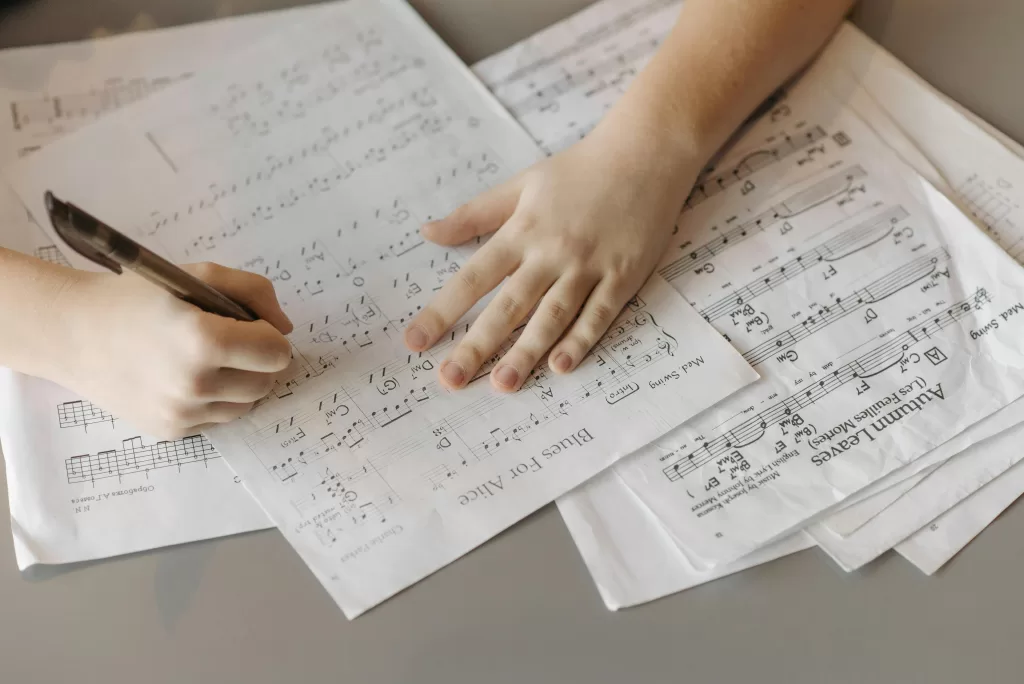Reading time: 4 minutes |
I teach ABRSM Music Theory from Grade 1 to Grade 8. The first 5 grades are quite standard today (it’s a pre-requisite if you are to take any ABRSM instrumental exam at grade 6 or above), whereas the remaining grades are more advanced. Whether you’re just starting out or aiming at the more nuanced aspects of music, learning music theory is necessary for a deeper connection with the music that you perform, compose, or listen. In this post, I’ll discuss the benefits of learning music theory and what’s involved.

Why Learn ABRSM Music Theory?
Music theory isn’t just for exam—it’s the bread and butter of a musician. A basic understanding can already transform how you read, perform, or compose music, whereas deeper knowledge of it will enable us to interpret music with greater depth and sensitivity. The skills developed through learning music theory will help you:
- Read sheet music more fluently
- Understand key signatures, time signatures, and rhythms
- Recognise harmonic progressions and compositional techniques
- Perform and listen with greater confidence
I should, again, mention that if you’re planning to take any Practical or Performance Grade 6 exam or above, passing Grade 5 Theory is a prerequisite in the ABRSM syllabus. This is quite a responsible requirement, as the the further you go in your musical journey, the more theoretical knowledge you will need to interpret the music in a stylistically sensible way.
What to Expect from ABRSM Music Theory Exams
Grades 1-5 are all about laying the bricks. These grades cover the essential bits of music theory. You’ll learn about:
- Rhythm, note values, and time signatures
- Major and minor scales
- Key signatures
- Intervals
- Chords and cadences
- Basic knowledge of orchestral instruments and terms
These exams are all held online. You have the flexibility to take the exam at home or any suitable location within 28 days of booking.
Moving up the music theory ladder, Grades 6-8 involve more advanced topics, including harmony, counterpoint, and a little bit of composition (it’s not for the faint-hearted!). You’ll also learn a little more about the history of Western classical music. Topics include:
- Chord labelling and figured bass
- Chord progression and modulation techniques
- Composition techniques
- Score analysis and stylistic/historic understanding
These advanced topics may not be for everyone, especially when three of out five questions in the exam involve the element of composition – e.g. harmonisation, realising figured bass, decorating a chorale, melody writing (sometimes with modulation), etc. For students who are committed to pursuing music at a higher level, however, this is often a rewarding experience. Also, these exams are paper-based, which take place on specific times and locations.
How I Help Students Prepare for Success
My ABRSM Music Theory lessons are designed to meet students at any stage of their journey. Regardless of your prior experience, my lessons focus on:
- Building a solid theoretical foundation
- Developing exam strategies and time management skills
- Offering individual feedback to target areas for improvement
- Providing mock exams and detailed walkthroughs of past papers
Learning theory with me isn’t just about passing exams though—it’s about developing a lifelong appreciation of music and the skills to succeed as a performer, composer, or music listener.
So get in touch if you’re ready to start your ABRSM Music Theory. I’d love to help you reach your goals. You can find out more about the lesson prices here.


